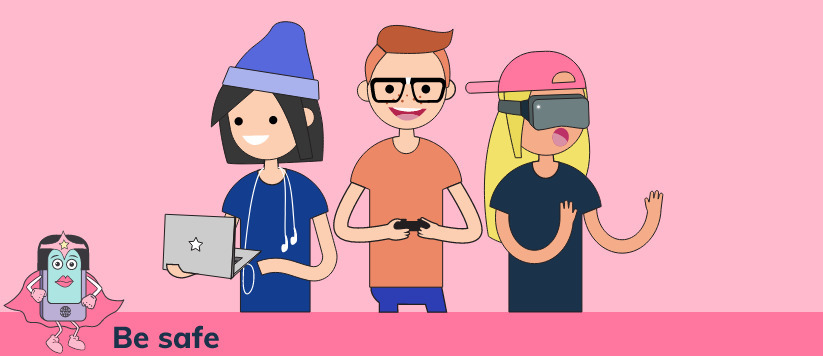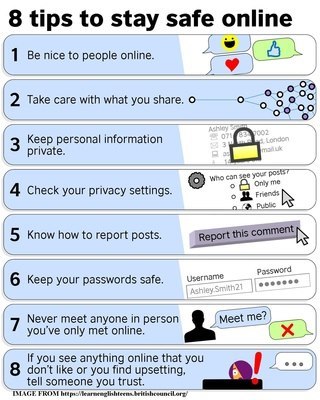Being safe online

1. Keep your personal information private — don’t give out your address, phone number or passwords. Find out more.
2. Check your privacy settings and talk about what to share — make your online accounts private and talk to your mum, dad, or carer about the kinds of photos and information it is OK for you to share online. Find out more in the eSafety Guide.
3. Cyberbullying — if you receive a mean message or a message that is mean about someone else, try not to respond and don’t forward it.
Tell an adult you trust about it and read our tips on what to do.
4. If you see something online you don’t like — show your mum, dad, carer or a trusted adult immediately. Find out more.
5. If someone you don’t know sends you a message or you receive a message that makes you feel uncomfortable or unsafe — tell your mum, dad, carer or an adult you trust straight away. Find out more.
6. Only ‘friend’ or add people you know in real life — remember that not everyone online is who they say they are, so don’t accept friend requests or followers you don’t know.
7. Don’t meet up with online friends — It is best to keep ‘online friends’ online, so if you do chat with other kids in online games don’t meet up with them in person.
